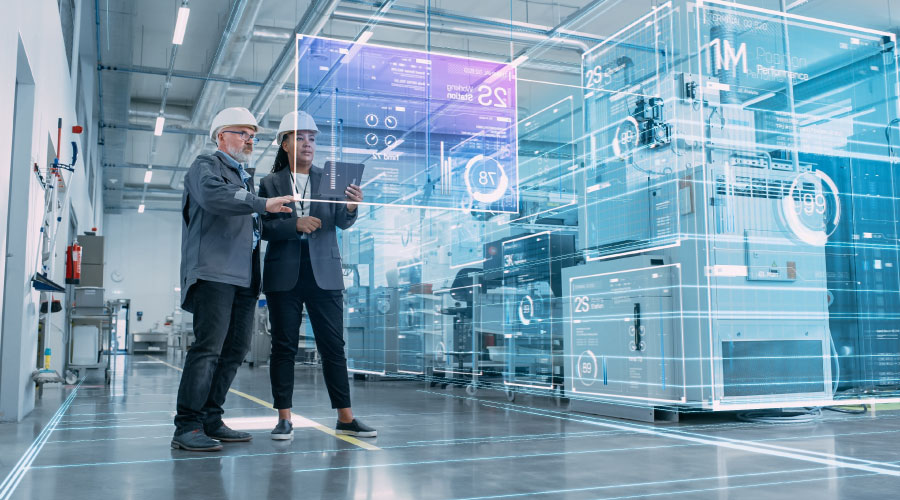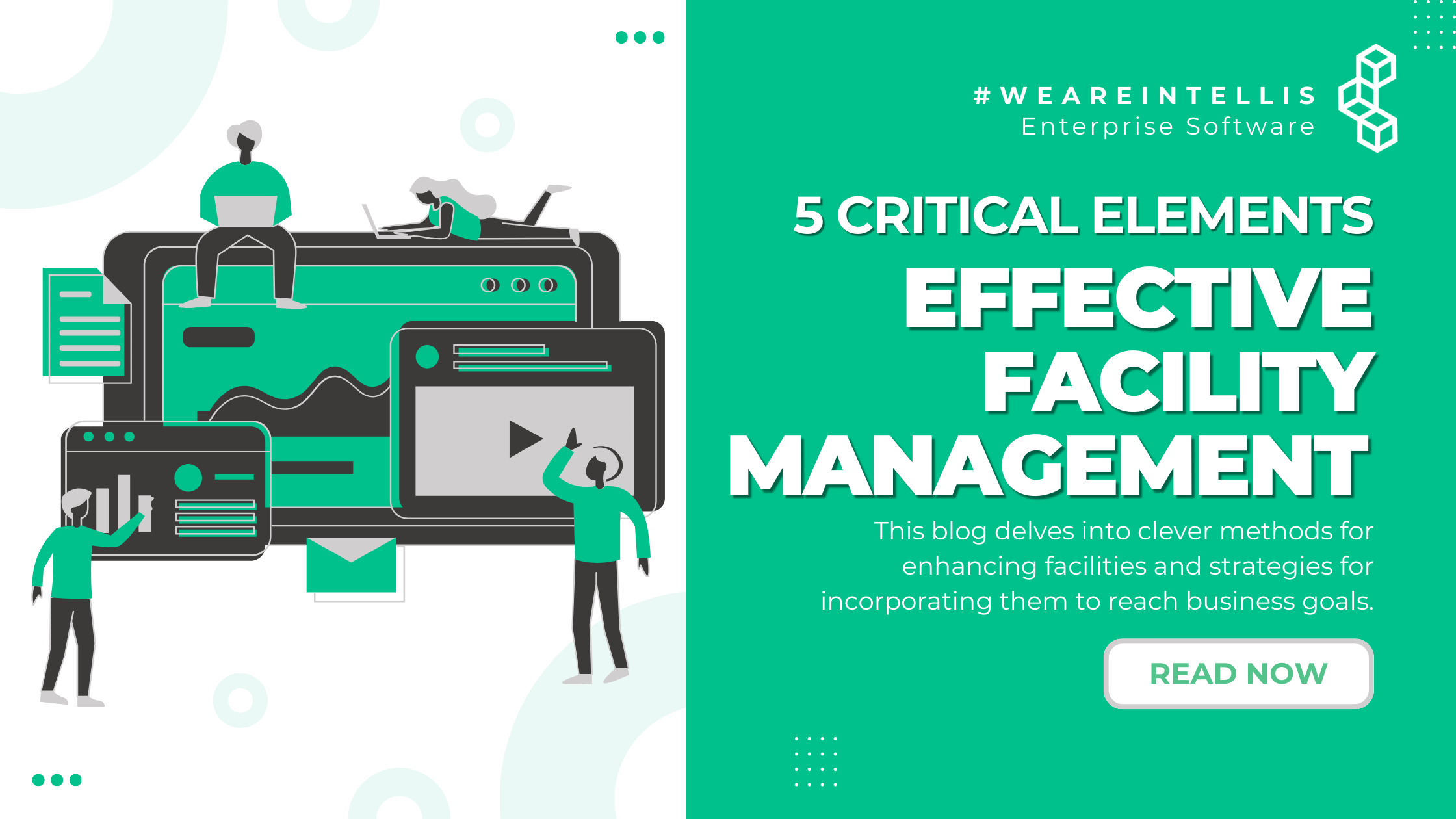The Role of Facility Management in Sustainable Workflow
The Role of Facility Management in Sustainable Workflow
Blog Article
Trick Patterns Forming the Future of Center Management in 2024
As we look in advance to 2024, the landscape of facility management is poised for significant improvement, driven by numerous vital trends. The integration of clever building innovations and a change towards data-driven decision-making pledge to improve functional efficiency while focusing on sustainability in technique. In addition, the appearance of hybrid job designs is reshaping office settings, requiring ingenious layout solutions that deal with evolving employee needs. Amid these changes, the focus on owner wellness proceeds to acquire traction, emphasizing the significance of a healthy work environment. Just how these patterns will certainly manifest in technique remains an essential inquiry for sector experts.
Smart Building Technologies

Smart structure innovations include a wide array of systems, consisting of intelligent illumination, cooling and heating controls, and protection systems. By integrating these systems, facility managers can check and readjust criteria in real-time, leading to significant decreases in energy waste and operational expenses. For example, smart sensors can identify tenancy levels and adjust lights and temperature as necessary, guaranteeing that power is only utilized when essential.
Additionally, these innovations help with improved data collection, permitting companies to track usage patterns and recognize possibilities for more improvements. The application of wise building technologies not just adds to sustainability goals however also develops much healthier workplace that can increase employee productivity and satisfaction.
As we relocate right into 2024, the fostering of smart building innovations will likely accelerate, mirroring a wider shift towards even more smart, receptive, and sustainable center management methods.
Data-Driven Choice Making
Increasingly, organizations are leveraging data-driven choice making to enhance center administration practices. By utilizing information analytics, facility managers can obtain workable insights that dramatically improve functional effectiveness and resource allowance. The combination of advanced technologies, such as IoT sensors and real-time tracking systems, enables the collection of large amounts of data on structure performance, tenancy rates, and energy usage.
This wealth of information enables facility managers to determine fads, anticipate upkeep needs, and proactively address concerns before they rise. For example, anticipating analytics can anticipate devices failings, reducing downtime and fixing costs. Additionally, information visualization devices help with far better interaction among stakeholders, making sure that notified choices are made collaboratively.
Furthermore, data-driven strategies boost critical planning by allowing facility managers to assess the efficiency of current methods and make educated choices regarding investments in modern technology or facilities. As companies progressively prioritize functional quality, data-driven decision production is poised to become a foundation of effective facility administration methods in 2024 and beyond. Ultimately, the ability to utilize data efficiently will empower companies to create extra efficient, productive, and resistant centers.
Sustainability and Eco-friendly Practices
The focus on data-driven choice making normally straightens with the expanding concentrate on sustainability and environment-friendly methods within facility administration. As companies progressively focus on ecological duty, facility managers are leveraging analytics to maximize resource usage, minimize waste, and decrease carbon impacts. This critical technique makes it possible for the combination of energy-efficient systems, such as LED lights, smart a/c controls, and sustainable energy sources right into center procedures.
Additionally, the execution of lasting practices expands past energy intake. Facility managers are taking on environment-friendly materials and advertising recycling initiatives to develop a round economic climate within their facilities. This not only enhances the ecological account of the organization yet additionally fosters a society of sustainability among workers.
Conformity with ecological regulations is another important facet driving the fostering of environment-friendly techniques. By using data analytics, facility supervisors can monitor compliance metrics and recognize locations for renovation, making certain adherence to global and local sustainability criteria.
Hybrid Job Designs
A considerable change towards hybrid job versions is improving the landscape of center administration in 2024. This standard integrates in-office and remote work, demanding a reevaluation of space usage, source allotment, and worker interaction techniques. Organizations are significantly identifying the value of versatile work areas that satisfy diverse demands and choices.
Center managers have to adapt by executing flexible office layouts that visit sustain joint efforts while providing areas for focused work. This includes the assimilation of modern technology to promote smooth communication and partnership amongst remote and in-office workers. Smart structure remedies, equipped with analytics and sensing units, enable for real-time monitoring of area usage, making it possible for companies to optimize their atmospheres successfully.
Moreover, crossbreed work versions stress the need for efficient center administration that prioritizes staff member experience. This incorporates not just technology and room design but likewise the development of plans that promote a balanced work-life dynamic. As business navigate this transition, the duty of facility administration becomes crucial in producing a nimble office that fosters efficiency and drives organizational success. Basically, the crossbreed job version is changing facility management, motivating a positive approach to fulfill the progressing demands of the labor force.
Boosted Passenger Wellness
As companies welcome hybrid job versions, a heightened emphasis on owner health is coming to be integral to center monitoring techniques. Facility Management. This change recognizes that a healthy and balanced and satisfied labor force directly affects productivity and retention rates. Facility managers are now prioritizing environments that advertise physical and mental health, integrating components such as natural lighting, biophilic layout, and easily accessible wellness resources

Modern technology plays a critical duty in this evolution. Smart structure systems can keep track of ecological factors and change setups in real-time, making sure optimum comfort degrees - Facility Management. Furthermore, comments mechanisms, such as occupancy sensing units and employee studies, permit center managers to consistently refine wellness initiatives based on occupant requirements.

Final Thought
In 2024, the future of center management will certainly be visit this web-site significantly affected by the integration of clever structure innovations and data-driven decision-making, cultivating boosted functional efficiency. These fads jointly underscore the advancing landscape of facility administration in reaction to contemporary obstacles and possibilities.
Facility managers are promoting and adopting environmentally friendly products reusing efforts to produce a circular economy within their centers.A substantial change towards crossbreed work versions is improving the landscape of center administration in 2024.Moreover, crossbreed work models stress the demand for reliable center management that focuses on staff member experience.As companies welcome hybrid job models, an enhanced emphasis on resident health is coming to be important to center monitoring approaches.In 2024, the future of facility monitoring will be significantly affected by the combination of smart building modern technologies and data-driven why not check here decision-making, fostering boosted operational effectiveness.
Report this page